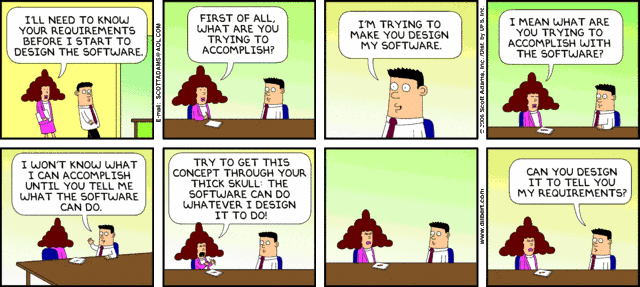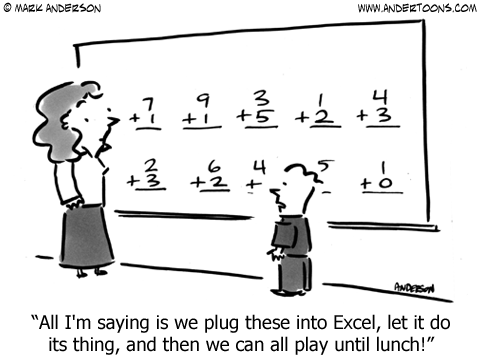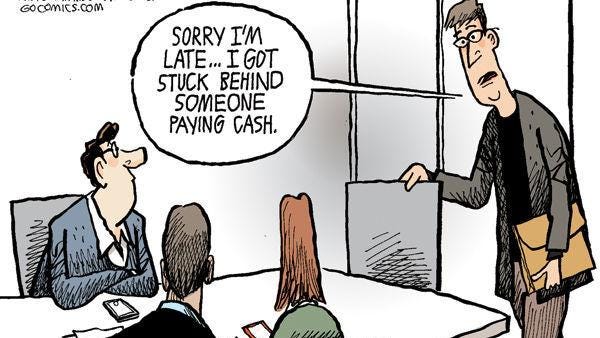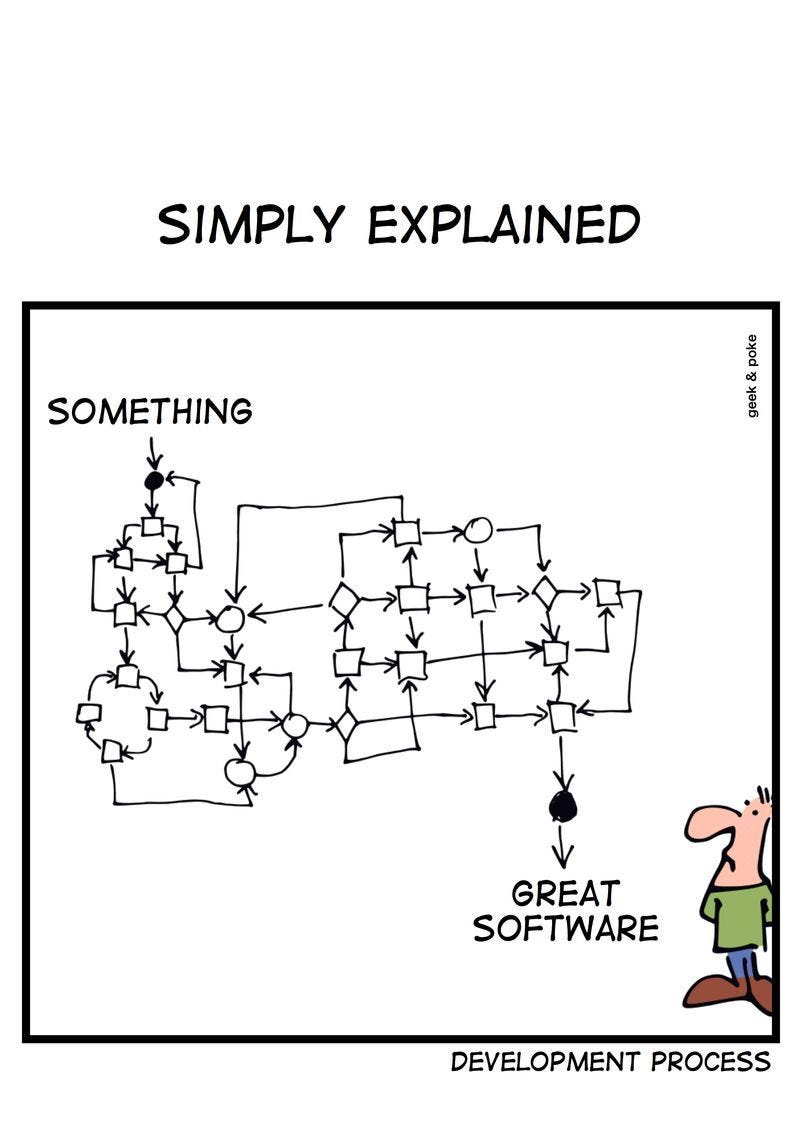Users are getting deplatformed. Banks are cutting off access to certain types of businesses. Accounts are getting frozen. Even entire applications are being kicked off of AWS, Apple App Store and so on. These are not good days if your views are contrary to the small window of allowable opinion and the ability of large companies to control the behavior of individuals seem to be greater than ever.
Why do big tech companies have so much power? Why are they in a position to de-platform whomever they want?
Social media platforms can censor users because they’re provided for free. Despite the End-User License Agreements that nobody reads, there’s no real contract there because in a sense, the users are the product. These platforms all make their money off of ads. Another way to think of these platforms is as giant honey pots to attract users so that their attention can be packaged and sold to advertisers.
The business model makes sense in that there are plenty of organizations that want users’ attention and these platforms are optimized to keep your attention, making it easy for organizations to pay to get it. The unfortunate consequence, however, is that the users are left without much recourse when they’re kicked off.
This comes back to the fact that there’s no real contract when it comes to these platforms. Users aren’t paying, exactly, so they aren’t really party to a trade. They’re getting access for free, so when access is taken away, there’s no real compensation due to them.
Indeed, this is at the heart of the problem on these platforms. There are no clean boundaries or edges to property. If you have an account on Twitter, for example, who owns the account? In a sense, you created the account, but it’s hosted on Twitter. Furthermore, you didn’t pay Twitter for the account, so there’s no market transaction that was made and no real obligation that Twitter has to you.
An account on Twitter, in other words, has fuzzy property boundaries and it’s unclear who owns what. Governments may pass laws saying you have rights to your own data and so on, but again, you provided it to the company and you didn’t pay them to store it for you, so it’s hard to argue from a property standpoint that they owe you anything.
The lack of property boundaries in this case are what cause all the confusion. Twitter clearly owns the databases that hold their data. Users, on the other hand have clear ownership of what exactly? Their tweets? Their username? An account within Twitter is in some sense property, and so is perhaps the copyrights to the content, but it’s not at all clear what is Twitter’s and what is the user’s.
The centralized party here is what blurs these lines of property. Possession is hard to define given that Twitter controls some aspects and the user controls other aspects. In a sense, the extent to which users control their own accounts is limited by the fact that Twitter sits as the centralized authority.
Indeed, the more centralized a piece of property is, the less property rights individuals have. The level of centralization is affected by regulation, monopoly and so on, but ultimately, they all limit the user from doing what they want with the property in question. In a very real sense, centralization takes away our property rights.
This is the problem that’s been prevalent in fiat money. The centralization of money in all its forms, be it the ability to confiscate, censor and inflate, have debased our property rights over money. We all get to spend our money with the permission of the centralized parties that regulate our transactions, such as Visa, ACH or FinCen. The more single points of failure there are, the more our property rights are degraded.
Significantly, bearer instruments have traditionally been the thing that gives people the most property rights. Possession, as they say is 9/10ths of the law and physical possession is hard to get in the middle of. But even there, physical confiscation is possible, such as in Executive Order 6102 which seized the gold of every US citizen.
In Bitcoin we have a bearer instrument that’s not physical and that changes the game in terms of property rights. This is the first scarce property that cannot be confiscated. Central parties cannot compel dispossession. That in turn means that the boundaries of property rights are even clearer in Bitcoin than anything physical, let alone the murky waters of property rights that are so typical of centralized services in the digital realm.
Bitcoin
Andrew Chow and Pieter Wuille have published 7 proposed BIPs regarding output descriptors. Descriptors have been in Bitcoin Core for the past couple of years, but it’s now specified in a BIP. The idea is to have a language that can describe different wallets, including multisig and things much more complicated. Wallet developers would do well to study these and incorporate these into their wallets.
We just had the largest difficulty adjustment ever in Bitcoin. The actual difficulty decreased by 28% and is due to all the mining equipment that’s currently looking for new homes outside of China. Difficulty can decrease by as much as 75% in a single period, but that would mean blocks that take around 40 minutes and 2016 blocks taking 8 weeks instead of 2. I expect difficulty to go back up after the current period as miners are likely losing a lot of money not putting their equipment to work.
Now that Taproot is locked in Jeremy Rubin writes about the next soft fork. He goes through the possibilities, which are SIGHASH_ANYPREVOUT, OP_CAT, OP_CHECKSIGFROMSTACK and OP_CHECKTEMPLATEVERIFY. He goes through a comparative analysis of all four and goes through the open questions behind each, the relative safety of each and what synergies they have with each other. I would have liked to see his opinion on Cross-Input Signature Aggregation, which he didn’t put as a possibility, but then again, I don’t think there’s a solid proposal, like the things mentioned above. Definitely worth reading for those wanting to learn what’s ahead.
The LN Markets newsletter has an amazing overview of DLCs. There’s much more in the article, but the explanation of how DLCs work was the best part. DLCs are discrete-log contracts and require an oracle to settle. They go over the startups in the space, how DLCs work in practice and what they’re useful for. DLCs have some centralization around the oracle, but at least any treachery is out in the open for anyone to see if the oracle cheats. I honestly wonder how DLCs will do in the future. Will there be a market for products of this nature? Is transparency enough to put some money at risk?
Lightning
Amboss is an excellent lightning network explorer. You can search for nodes and claim your own if you so choose. They also have very useful statistics like channel capacity, number of channels and the ages of the channels. There are nice graphs of how each channel has changed over time. I suspect that tools like this will become more necessary as nodes automate decisions about whom to open channels with.
If you want to run a Lightning node, Plebnet is a network of lightning node operators helping each other. They have a fantastic starting guide, but the more important aspect is the community. The idea is to create a network that’s outside the mainstream companies to help route a lot of payments and learn more about the Lightning Network. Communities like this are what will help grow the Lightning Network, which really is peer-to-peer.
Stacker News is a Lighting-powered Hacker News-like site. The idea is that instead of votes that can easily be Sybil-attacked as they often are on Hacker News or Reddit, you can use Lightning to vote on news items. I have to say that I really like the site and given that it’s only 1 sat to boost any news item, it’s really cheap. The quality of posts there are much more technical than what you’d get from r/Bitcoin on Reddit, so it does seem like something is working. It’s also open-source, so anyone can clone and create their own version. The site is a great use of Lightning’s natural Sybil-resistance.
Economics, Engineering, Etc.
Alex Gladstein has an important long-read on Cato Journal about the elimination of cash and the coming war between surveillance and freedom. The article highlights why governments are pushing for CBDCs and how they’re using it for surveillance, which they couldn’t do with cash. Furthermore, Alex makes the argument that governments are engaging in a form of social engineering through the tools CBDCs make available. He then turns to Bitcoin and shows how technology can also be a tool for freedom.
Peter St. Onge argues on Mises.org that Lightning is what will take Bitcoin to hyperbitcoinization. His argument is that as Lightning grows, there’s less friction for Bitcoin’s use for payments, which ultimately makes it so that people can get off of fiat money in a hyperbitcoinization scenario. El Salvador is a great test bed for this thesis as a lot of lightning nodes help connect the people at Bitcoin Beach and the government there has made Bitcoin legal tender.
Strike is getting into the exchange business. They plan to have the lowest fees in the market at 0.3% and plan to challenge the current players with the lower fees. Long-term, I think this is where we’re all headed as fees will likely be a race to the bottom. We’re still at the stage where most consumers are fine paying more for convenience and usability, but the time is coming when someone will offer convenience, usability and low fees. I hope Strike or someone like them is successful.
Colin Harper predicts the consequences of the China mining ban. The main consequences are that ASICs will be dropping in price while at the same time increasing the value of hash rate. Traditionally, mining has been dominated by capital equipment cost of the ASICs themselves, but it looks like energy infrastructure right now is the big bottleneck. He predicts regulatory clarity as miners try to avoid what happened to them in China and a decrease in Chinese pools to reduce counterparty risk. I liked the article as it was thoughtful and well-reasoned.
The New York Times does a good job of exposing how the Internet Computer token (ICP) fizzled after their ICO. This is a token that has dropped 90% since its inception and the article details why this might be. Much like fiat money, the insiders look like the ones that are making out like bandits, while anyone that isn’t an insider has lost substantially. The article is a reminder that ICOs are alive and well and are still the cesspools of cronyism that they were back in 2017-2018.
Quick Hits
Mircea Popescu is apparently dead.
Alex Berge has an epic Tweet thread about how Ethereum is broken.
There have been some pretty stupid altcoins, but it’s hard to think of something with so much backing that’s so stupid as WorldCoin.
Another week, another exploit on an altcoin platform.
Events
I will be at The Bitcoin Standard conference on August 12-14 in Mexico and BitBlockBoom in Dallas on August 26-29.
The Programming Blockchain seminar is in Mexico on August 10-11. This is a 2-day seminar for programmers to learn about Bitcoin. You can apply here. I also have a few scholarships available for those that can’t afford it.
Podcasts, Etc.
On this week’s Bitcoin Fixes This, I talked to Alex Epstein about fossil fuels, the importance of stable production in energy, and the benefits of Bitcoin to the energy grid.
I read through last week’s newsletter on Twitter Spaces which you can find here.
I debated Jim Bianco on Real Vision about the usefulness of DeFi and I was on Tone’s show to talk about the difficulty adjustment, John MacAfee and much more.
Here is the new book:
Unchained Capital is a sponsor of this newsletter. I joined as an advisor to be a part of a company that’s enhancing the security for Bitcoin holders. If you need multisig, collaborative custody or bitcoin native financial services, learn more here.
Fiat delenda est.












Jimmy, people could learn a LOT about how to write a good weekly update by following your lead.